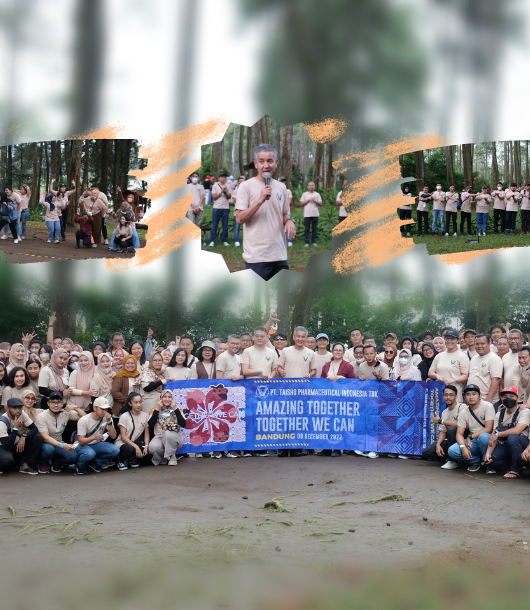


Just recently, it was widely reported that Jakarta was again one of the cities with very poor air quality. In fact, Jakarta ranks number two on cities with worst air quality in the world.
Just recently, it was widely reported that Jakarta was again one of the cities with very poor air quality. In fact, Jakarta ranks number two on cities with worst air quality in the world.
Prolonged dry seasons, increased industrial exhaust emissions, motor vehicles, and fossil -fuel power plants are the main causes. Not surprisingly, Jakarta is a busy city and suffer from traffic jams every day. The longer a vehicle is stuck in traffic, the more emission or pollution it produces.
The problem of air pollution should not be taken lightly, because this can have an impact on the health of your little ones. Here are some of the negative effects that air pollution can have on children.
Impact of Air Pollution on Children's Health
Air pollution issue should not be taken lightly, because this can have an impact on the health of your little one. Some of the negative effects that can be caused by air pollution on children are:
1. Respiratory tract disease
Air pollution can cause problems in the respiratory tract of children as the lungs and respiratory tract of children are still in the development stage so that exposure to unclean air will be more at risk of damaging the development of their organs and respiratory tract. In children who have a history of allergies and asthma, exposure to air pollution can also increase the risk of recurrence of their allergies and asthma.
In addition, the duration of exposure to air pollution can also affect the emergence of respiratory diseases. Children habits of playing outdoors is one of the factors that can increase the duration of exposure to air pollution which can lead to their respiratory tract damage.
2. Skin and eye irritation
Pollution also has a negative effect on the exterior parts of your children’s body. One of them is skin and eye irritation. Some types of air pollutants may cause dry skin, clogged pores, pigmentation on the skin, and dry eyes.
3. Fetal disorders
In addition to the dangers of direct exposure, air pollution can also affect babies while they are still in the womb. A study revealed that pregnant women who are exposed to air pollution may have their babies experience cognitive impairment after birth. In addition, pregnant women who are often exposed to air pollution can also give birth to premature babies and babies with low birth weight.
4. Mental disorders
A recent study revealed that exposure to air pollution for a certain duration is associated with the emergence of mental disorders, such as depression, bipolar disorder, and personality disorders in children. However, do not hit the pani button yet, because air pollution is only one of many factors. Mental disorders can be caused by a variety of factors, including genetics and environment.
In essence, air pollution is not good if inhaled by children. Air pollution is not just the air outside/outdoor. Rooms in your house can also be contaminated by air pollution, such as cigarette smoke, stove smoke, air freshener products, wall paint, and cleaning products.
Tips for Protecting Children from Air Pollution
• Avoid activities around highways or busy streets with a lot traffics
• Set the air conditioner to “re-circulate” mode, and change filters regularly
• Collaborate with schools to limit children's playing time outdoors when Air Quality Index (AQI) is not good
• Have your children wear proper mask (ensure good size). Change the mask when it gets dirty or after prolonged use. If the AQI is very high, it is better for children to stay indoors
• Avoid activities in the house that can increase contamination, such as smoking in the areas around the house because it will worsen the impact of air pollution and the impact of exposure to cigarette smoke for children
• Make sure your child stays hydrated; it is recommended to drink plenty of water to keep the airway moist and mucus thin
• You may use an air purifier to help clean the air in the room.
Maintaining a child's immune system is also very important. Children with healthy immune systems can fight infections and other risks caused by pollution. Therefore, adopt a healthy lifestyle such as consuming nutritious food, exercising, and getting enough rest. Don't forget to have medicines such as fever medicine containing paracetamol available at your home first aid kit for first aid for your little one. If pollution has caused complaints and health problems, do not hesitate to consult a doctor, so that appropriate treatment is given.
Reference
https://www.cdc.gov/nceh/multimedia/infographics/childrens_environmental_health.html


Copyright © 2021 TAISHO PHARMACEUTICAL All Right Reserved